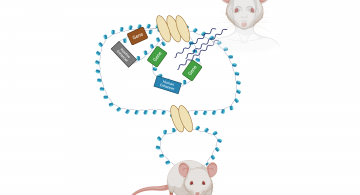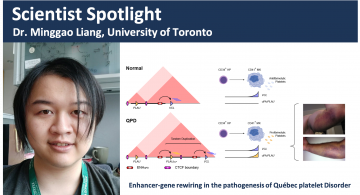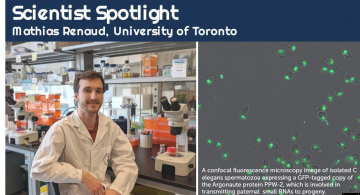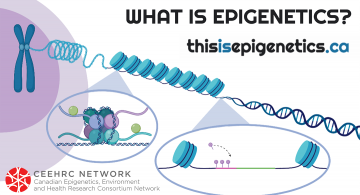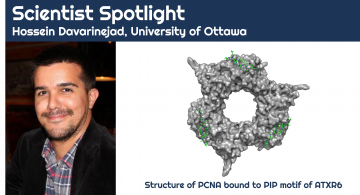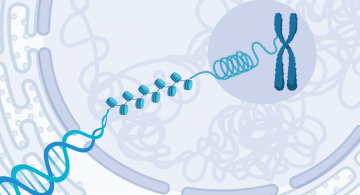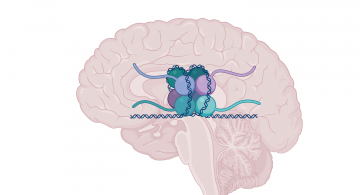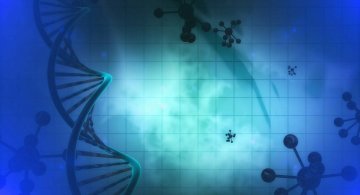Development
The regulation of gene expression by transcription enhancers is critical for cellular identity and the observable difference between species.
Scientist Spotlight
Dr. Minggao Liang's research is focused on elucidating the cis-regulatory consequences of genetic variation in the context of evolution and human disease. Learn more about Minggao.
Scientist Spotlight
Mathias Renaud is a Graduate Student in Dr. Julie Claycomb's laboratory at the University of Toronto. Learn more about Mathias and his research here!
News
CEEHRC—a network of epigenetic scientists and researchers from across Canada—has launched a new knowledge sharing initiative.
Scientist Spotlight
Hossein Davarinejad is a Graduate Student in Dr. Jean-François Couture's laboratory at the University of Ottawa. Learn more about Hossein and his research here!
What is Epigenetics?
Over the last decades, there has been much debate regarding chromatin state of matter. Up until recently, chromatin was believed to be liquid.
Neuroscience
The brain is a remarkable organ and one of the most complex to assemble. DNA methylation mediates differentiation and regulation.
Transgenerational Inheritance
The parental environment can influence the health of subsequent generations through epigenetic inheritance.
Reproductive Health
The reproductive system’s developmental and functional processes strongly rely on dynamic, yet faithful, epigenetic mechanisms from early development to adulthood. The pre-conception health of men and women, along with the in utero environment, have a direct impact on epigenetic modifications in sperm and oocytes (eggs). Therefore, lifestyle choices are key to safeguarding your health, fertility and the health of future children.
Cancer
A key characteristic of cancer cells is their ability to adapt their metabolism to their environment, and some of these changes are dependent on epigenetic dysregulation.
